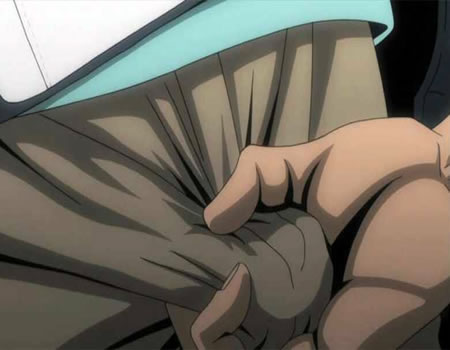A major cause of pains in the testicles is testicular rupture; this happens when there is a tear in the protective membrane that surrounds the testicle; such a tear causes blood to leak into the scrotum.
Testicular rupture is caused by external injuries such as a car accident or a sports injury. Testicular rupture should be treated within 72 hours of the injury. There are four out of five chances that the testicle can be saved in time. If you experience prolonged testicle pain, it is wise and advisable that you consult a doctor without delay.
Other form of testicular pains includes:
Kidney stones: Kidney stones are masses that form in the kidneys from urinary crystals. The cause of their formation is not exactly known. Some men are more susceptible to the formation of kidney stones than others, again, no one can say why. Kidney stones, however causes testicular pain because the pain radiates downward. This problem can be treated by drinking copious amounts of liquids to pass the stone in urine. Pain relief medicine is usually prescribed to manage the pain that comes from passing a small stone through the urethra.
Orchitis: Orchitis is defined as a painful swelling of the testicles that happens due to inflammation of the epididymis; the epididymis is a tightly coiled tube situated in the back of each testicle that stores semen. Other causes of orchitis are viral or bacterial infections or sexually-transmitted diseases. Symptoms of orchitis are blood in the semen, fever, pain when the penis or the testicles are moved or used. Doctors usually treat orchitis with antibiotics and anti-inflammatory medicine.
Spermatocele: A cyst growing inside the epididymis; a tightly coiled tube situated in the back of each testicle that stores semen, is known as a spermatocele. This may cause pain in the testicles. Spermatoceles are quite common and usually do not cause problems. When they grow a few centimeters big, they cause heaviness, discomfort, or pain. Doctors check the spermatocele to determine if it is cancerous but apart from that, there is no medical treatment, however, removal of spermatoceles may render the male sterile.
Varicocele: Varicocele refers to an enlargement of the veins inside the scrotum. This condition makes your scrotum feel like a bag full of spaghetti or worms. The veins carry impure blood back to the heart. Due to the enlargement of veins, a buildup of blood occurs. Testicular pain in this condition ranges from mild to severe. It grows more painful during the course of a day. Majority of varicoceles occur in the left testicle due to the placement of the veins and the testicles in the body. They are treated using anti-inflammatory medicine or surgery to remove the blocked veins.
Epididymitis: This is an inflammation of the epididymis, known as epididymitis. It could cause pain in the testicles since it is connected to the testicle. Bacterial infection is the most frequent cause of epididymitis. Either Sexually Transmitted Disease (STD) or coliforms find their way into the urethra and reach the epididymis this causes the testicles to become red and swollen. Pain is felt during ejaculation and bowel movements. Other symptoms are the frequent urge to urinate and blood in semen.The condition is cured using antibiotics.
Hematocele: This is a collection of blood in the protective layers around the testicle. It can be caused by injury to the testicle. Depending on the discomfort felt, hematoceles may be treated simply by bed rest or by draining the affected area.
Testicular torsion: Testicular torsion happens when the spermatic cord gets twisted and stops the flow of blood to the testicles, leading to intense testicular pain. This condition should be treated as quickly as possible to avoid losing the affected testicle. Doctors will re-set and stitch the testicle to the inside of the scrotum to prevent the spermatic cord from getting twisted again.
Testicular pain is never an enjoyable condition. It is important that this condition should not be taken lightly as it could take away a man’s power to father children. No matter how slight or simple you feel the pain is, visit your doctor without delay.
- Additional report: MensHealth






